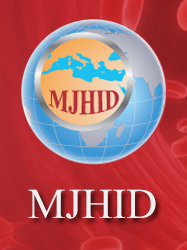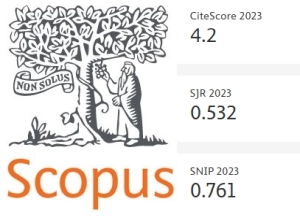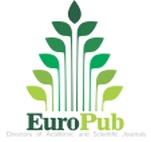SIMPLE PERIPHERAL BLOOD SMEAR FINDINGS OF COVID-19 PATIENTS PROVIDE INFORMATION ABOUT THE SEVERITY OF THE DISEASE AND THE DURATION OF HOSPITAL STAY.
Peripheral blood smear and COVID-19 severity.
All claims expressed in this article are solely those of the authors and do not necessarily represent those of their affiliated organizations, or those of the publisher, the editors and the reviewers. Any product that may be evaluated in this article or claim that may be made by its manufacturer is not guaranteed or endorsed by the publisher.
Accepted: December 6, 2020
Versions
- 2021-01-01 (2)
- 2020-12-31 (1)
Authors
Backround
Data about the morphological changes of Covid-19 infection in peripheral blood smear are limited and association with clinical severity of the disease are not known yet. We aimed to examine the characteristics of the cells detected in the pathological rate and / or appearance and whether these findings are related to the clinical course by evaluating the peripheral blood smear at the time of diagnosis in Covid-19 patients.
Methods
Clinical features, laboratory data, peripheral blood smear of fifty patients diagnosed with Covid-19 by PCR was evaluated at diagnosis. Peripheral smear samples of the patients were compared with the age and sex matched 30 healthy controls. Pictures were taken from the paitients’peripheral blood smear. Patients were divided into two groups. Early and advanced stage patient groups were compared in terms of laboratory data and peripheral smear findings. The relationship between the laboratory values of all patients and the duration of hospitalization was analyzed.
Results
Pseudo pelger-huet, atypical lymphocytes, vacuole monocytes and pycnotic neutrophils rates were high in the patient group. Increased pseudo pelger-huet anomaly, psodo-pelger huet/mature lymphocyte ratio, decreased number of mature lymphocytes, and eosinophils in peripheral blood smear were observed in the advanced stage patients (p <0.05). A negative correlation was observed between the duration of hospitalization and mature lymphocyte, and monocytes with vacuoles rates (p <0.05).
Conclusion
Peripheral smear is a cheap, easily performed, and rapid test. Increased pseudo-pelger huet anomaly/mature lymphocytes rate is suggesting advanced stage disease, while high initial monocytes with vacuoles and mature lymphocyte rates at the time of diagnosis may be an indicator of shortened duration of hospitalization.
Department of Hematology, Associate professor of Hematology
Department of Infectious Diseases, MD
Department of Hematology, MD
Department of Chest Diseases ,MD
Department of Hematology, Professor of Hematology
Department of Medical Oncology, MD
Inonu University Biostatistics Department, Associate professor
Department of Anesthesiology , MD
How to Cite

This work is licensed under a Creative Commons Attribution-NonCommercial 4.0 International License.














